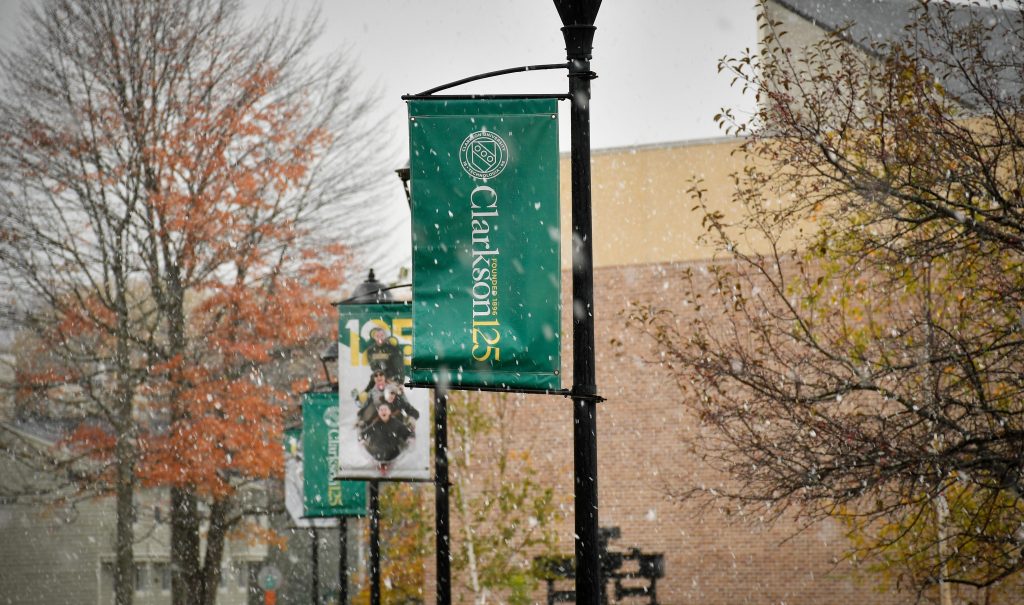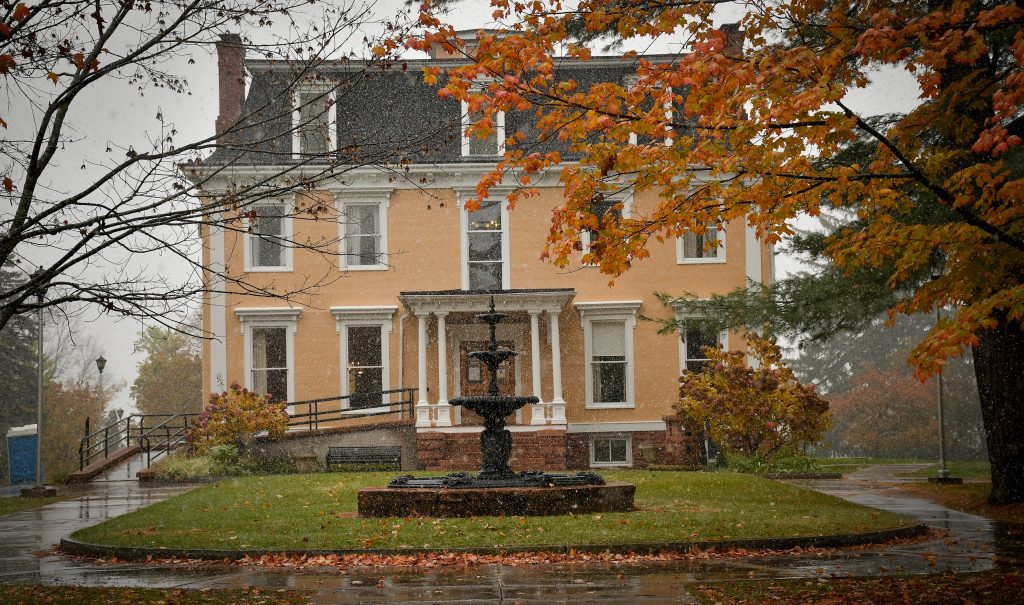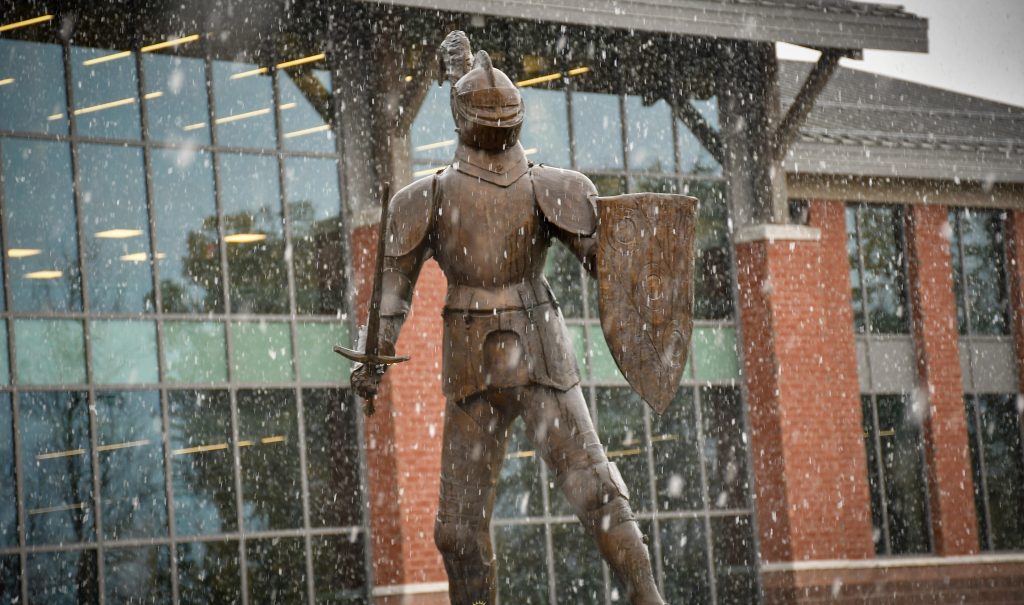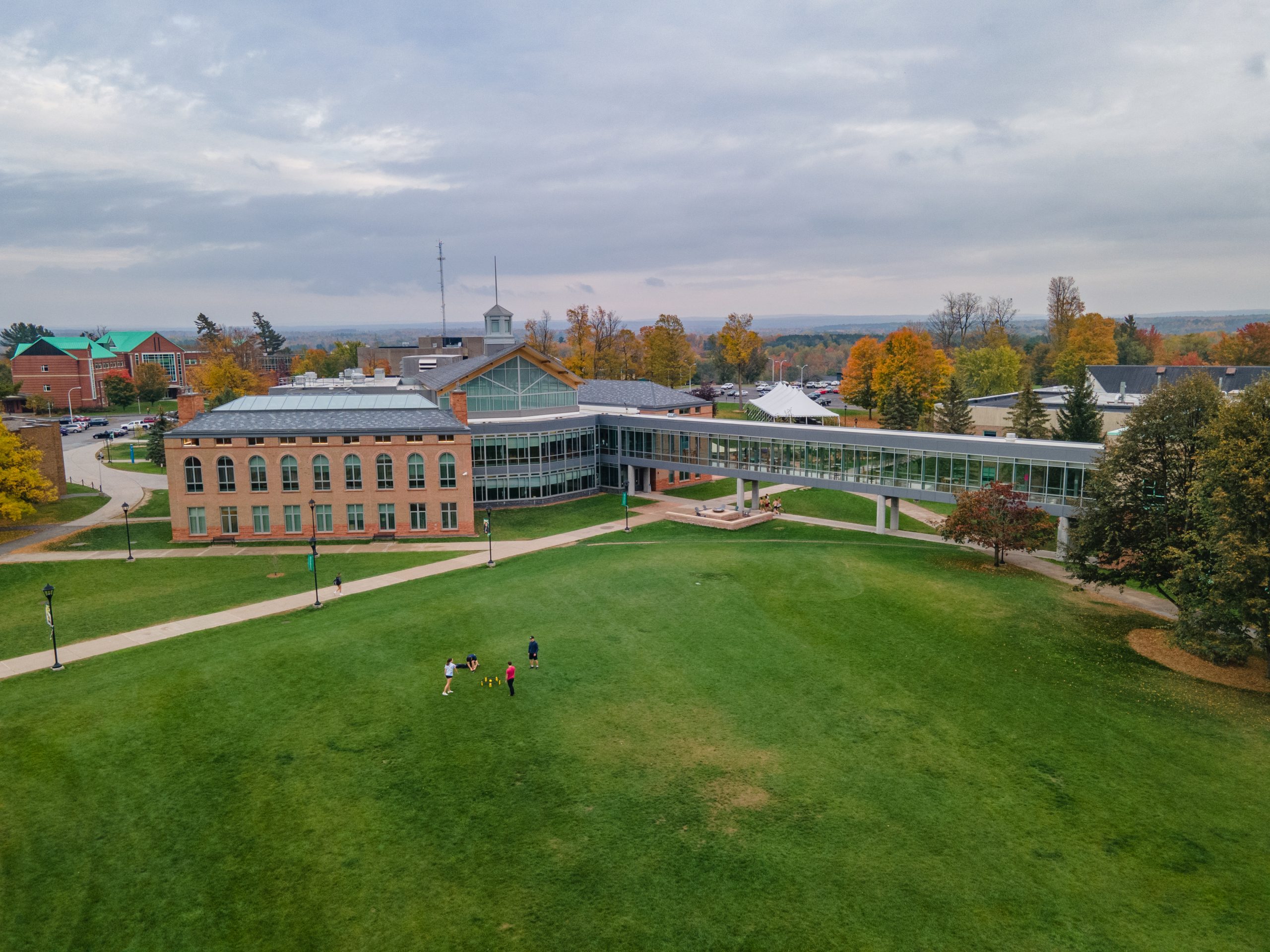Transferring can be a complicated process, but thanks to my advisor Abul Khondker and Jon Moser who is Associate Dean of the Transfer Department, transferring in was relatively easy.

My name is Gianna and I’m currently in Clarkson’s 3-2 engineering program in collaboration with SUNY Potsdam. This program allows students to easily transfer credits between the two colleges and earn two bachelor’s degrees in five years! My first degree is a B.S. in Physics through SUNY Potsdam and I’m currently working toward my B.S. in Computer Engineering at Clarkson. Because of this program, I transferred to Clarkson in spring of ‘21, and I’m currently working with the External Marketing and Relations department on campus.
Transferring colleges can be a confusing process and can feel quite overwhelming at times. However, with the right tools and information, this process can be an easy transition. Whether you are transferring from a community college or another four-year college, there are some basic things you’re going to want to know to help get you started. Below are just a few highlights of the process, from the application to adjusting to your new life at Clarkson University.
Will I get in?
Great transfer applicants are similar to great freshman applicants because they both have strong grades and test scores, are involved on campus at their current school, and have strong letters of recommendation. The most important part of a transfer application is your college transcript. If your grades aren’t up to par you may have difficulty being accepted. If that is the case, you may consider retaking a class that you did poorly in before submitting your application.

Clarkson University, like most schools, has a few things you need to submit in addition to your application. It is required that a transcript from every previously attended college, a high school transcript, a dean of students recommendation form, two letters of recommendation, and one personal statement be submitted. Most of the info you’ll need along with the application itself can be found here.
When focusing on your letters of recommendation you should be mindful of who you ask. One letter should be from a college professor and the other should be from a counselor or an employer. These letters should obviously highlight your strong qualities and they should give insight into the kind of success you’ll achieve at Clarkson. A personal statement is usually kept relatively short, around 500 words or less, and should either be about a special interest or achievement. A personal statement is a student’s best chance to connect with the admissions office before being accepted and should be used as a way to stand out from the rest of the pile. While Clarkson doesn’t have an official GPA requirement, it’s said that you’ll at least need a 3.0 to have a successful time transferring. Colleges take great consideration into how active someone is on campus. It definitely helps strengthen your application if you are involved in multiple groups, clubs, or sports. Lastly, make sure you are mindful of Clarkson’s application deadlines.
Are my credits transferable?
This may be one of the most important questions you ask yourself during the transfer process. Many incoming transfer students assume that their credit will automatically apply toward their major, but oftentimes that isn’t the case.

There are no guarantees that your courses from your original school will qualify as transfer credits. For example, a course taken at a community college may need to be individually evaluated by a university to confirm it meets the same requirements. In addition, if you earned less than a 3.0 in that course, it may not be eligible to transfer.
You should always review the course catalog to get an idea of how many credits might be applied to your specific major. You can also plan a meeting with an academic advisor at Clarkson University before your transfer, so they can set you on the right track. Verify the details of any transfer agreements or requirements with these advisors.
Is Clarkson the right fit for me?
One of the most important things a transfer student can do is try to visit the campus, either in person, if possible, or virtually. Talk to the faculty and other students to get a personalized take on the aspects that are important to you. Specifics such as class size, clubs, and recreation both on and off-campus, and even the weather, can be important factors in your decision. Clarkson University offers scheduled tours of the campus either through appointment or through your current advisor.

Another aspect to consider is your financial situation. Be sure to add Clarkson University to your FAFSA application to be considered for all applicable student/parent loans, grants, and work studies. If you need additional funding, be sure to apply for any scholarships you qualify for as early as possible. There are also many job opportunities that can be found off-campus if additional funding is needed.
Hopefully, some of these tips and ideas can help ease your transition. When you are a transfer student you can feel as though you are at a disadvantage because your peers may seem more comfortable in this environment or may have a routine or be more familiar with some of the professors. However, this doesn’t have to be the case. You can find your own way to stand out and create relationships with a little thought, effort and determination. Professors love and appreciate when students show interest in their passions and teachings. Take advantage of their willingness to help guide you to your own path to success.
Once you’ve been accepted to Clarkson, it might help to read another blog I wrote about Getting Acclimated to Clarkson. Good luck!

